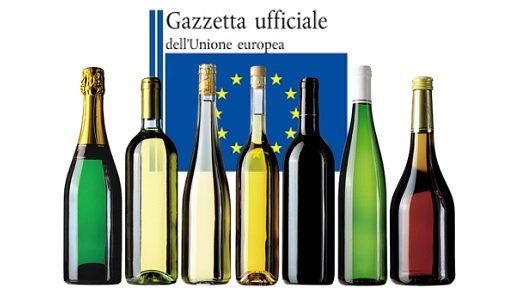The text approved unanimously in Comagri must be maintained. The organizations of the Italian wine sector speak on the eve of the vote in the plenary session of the European Parliament.
In view of the vote of parliamentarians in plenary session tomorrow, May 31, and, following that, the start of the trialogues with the European Commission and Council, the organizations of the Italian wine-growing and wine-producing chain – Alleanza Cooperative Italiane-agroalimentare, Assoenologi, CIA, Confagricoltura, Copagri, Federdoc, Federvini and Unione Italiana Vini – have appealed to the Minister of Agriculture and the European Parliamentarians to maintain the integrity of the text approved in the Agriculture Commission of the European Parliament.
The organizations, in fact, welcomed the approval of the report by Hon. Paolo De Castro on the reform of the Geographical Indications system, unanimously approved last April 20 in Comagri, which succeeded in the complex objective of finding a reasoned synthesis, including with regard to the wine discipline.
As reiterated elsewhere, the representatives of the Italian wine sector are convinced that “it is necessary to maintain the specificities of the wine sector, believing that the “wine package,” as voted by the Agriculture Commission, has succeeded in this intent, making a clear improvement on the European Commission’s initial proposals, and should therefore be kept intact, without any changes, to avoid altering its delicate balance.”
La relazione si basa sui seguenti pilastri:
- strengthening the role of consortia, greater protection, simplification and clarification of the role of the european patent office (euipo), sustainability and transparency. regarding the first point, consortia represent the engine of development of GIs, and will continue to remain in the hands of producers alone, with more and better responsibilities, including combating devaluing practices and promoting GI tourism, which,” De Castro explains, “we believe can prove to be a “real flywheel for the development of our regions and territories.
- regarding the criteria for recognizing consortia, national schemes, such as the Italian one, which already function effectively, have been safeguarded, the rapporteur points out. Member states will also be given the option of introducing compulsory erga-omnes contribution schemes, whereby all producers are obliged to bear the costs of the consortium in carrying out the activities under the regulation;
- on protection, the main provisions concern online protection, which is to become ex-officio thanks to an alert system developed by euipo, and protection when igs are used as ingredients, making authorization by the consortium mandatory;
- were then eliminated,” De Castro adds, “all those loopholes in the system that allow member states or producers to unduly exploit the reputation of geographical indications, through national technical standards, as in the case of Slovenian and Cypriot balsamic vinegar, or even Union instruments, such as traditional mentions, in the case of prosek Made in Croatia. In particular, it was clarified in the definition of traditional mention how these cannot correspond to or evoke recognized GIs.”
- to eliminate bureaucracy for producers, the report proposes to reduce the time for the Commission to register a new ig from six to five months and limit the extension period to a maximum of three months and only in duly justified cases. The National Authorities will be handed the handling of most requests to change existing ig registrations without the Commission checking them again. It must also be the Commission, with its unique expertise in agriculture, that administers the ig system, rather than euipo, which will, however, be able to give important advisory support on technical issues;
- a requirement has been included to indicate the name of the producer on the label of any ig product. At the same time, for igp products only, it will be mandatory to indicate the origin of the main raw material on the label if it comes from a different country than the member state where the production area is located.
“With this regulation,” this is De Castro’s conclusion, “we will create a true single European text on quality productions, which will strengthen the protection, promotion and sustainability of our GIs, known throughout the world as synonymous with quality and excellence, thanks to the passion and expertise of our farmers and producers.



